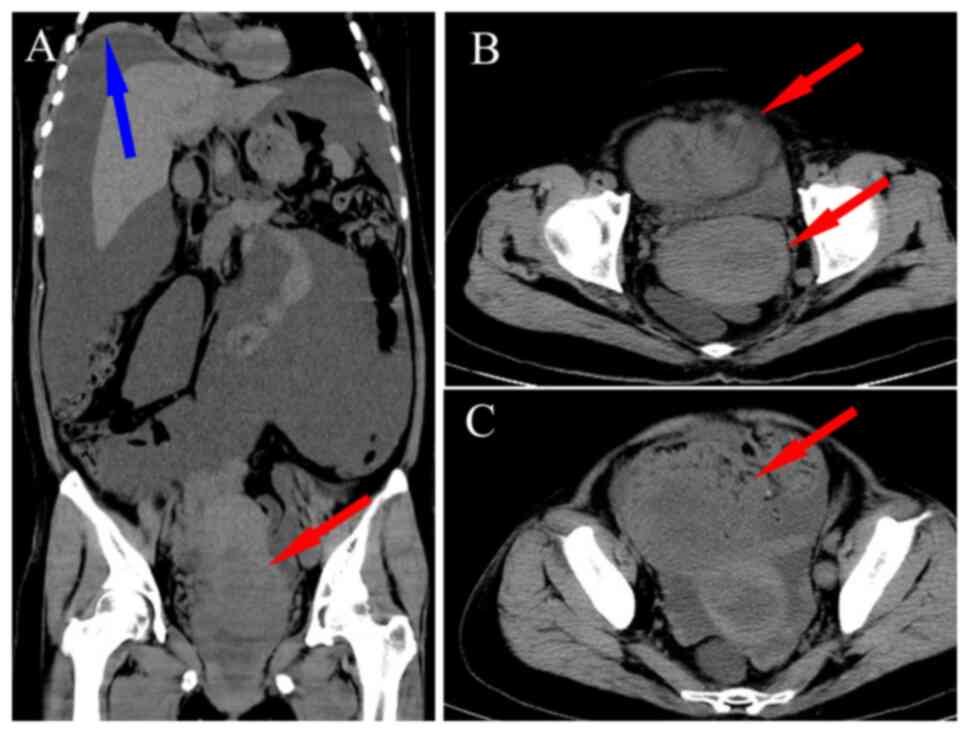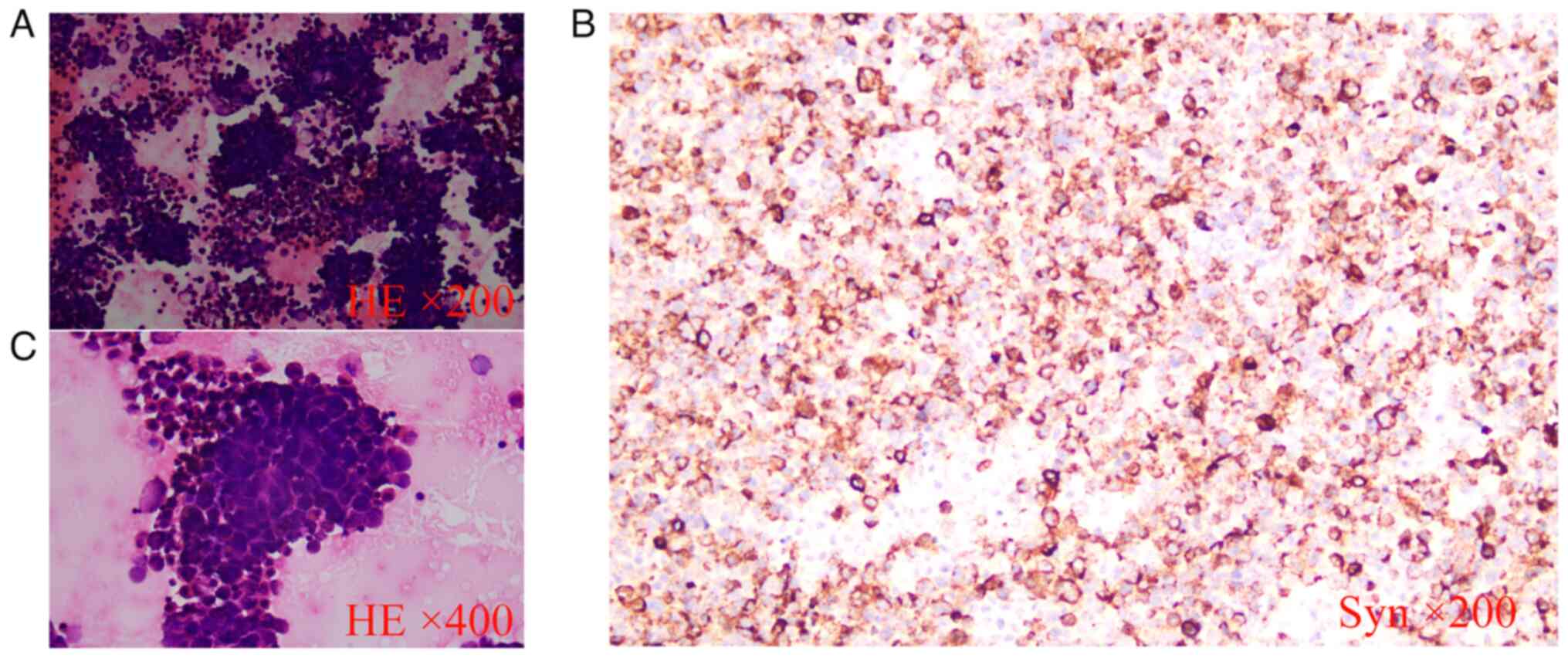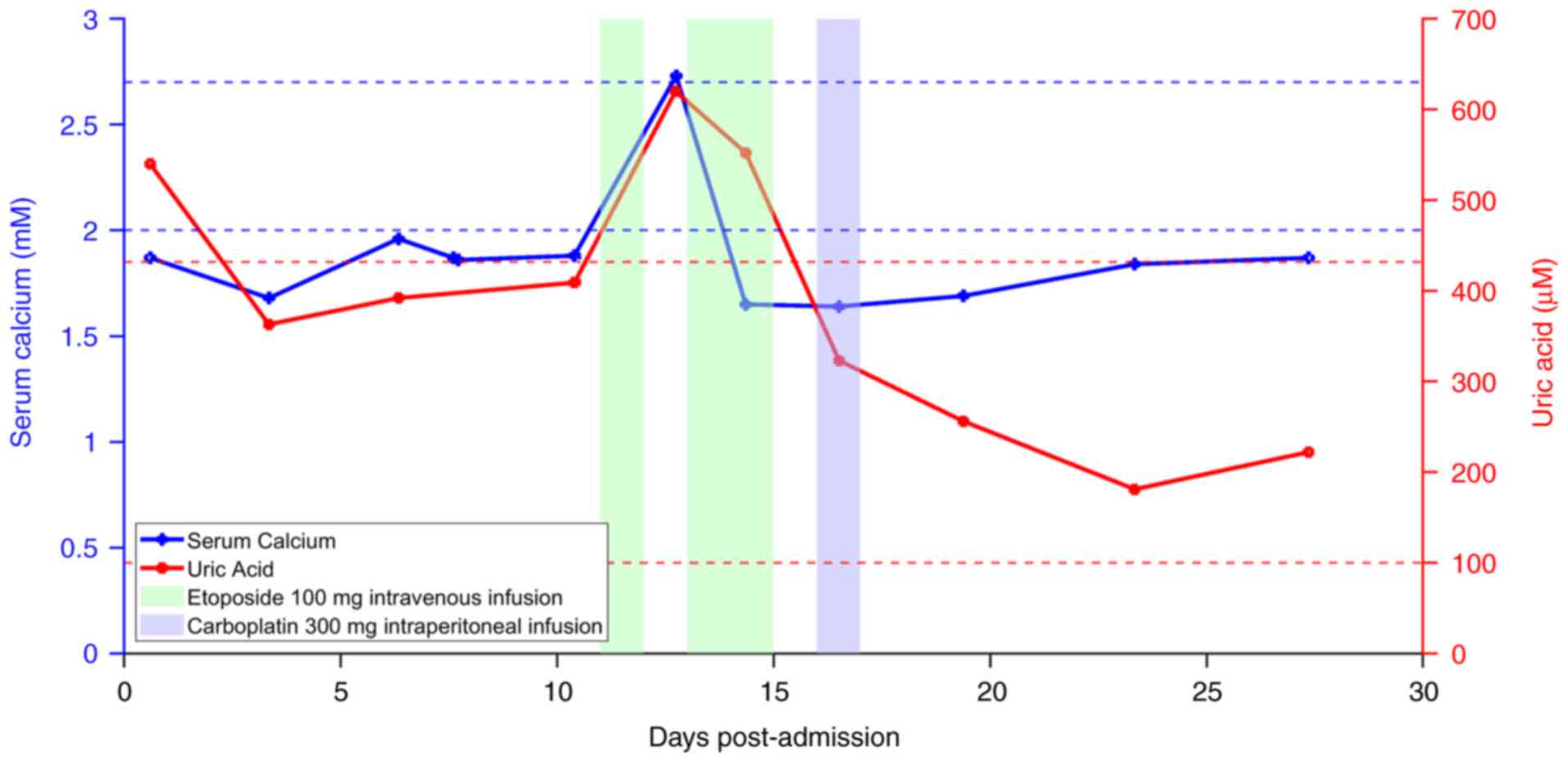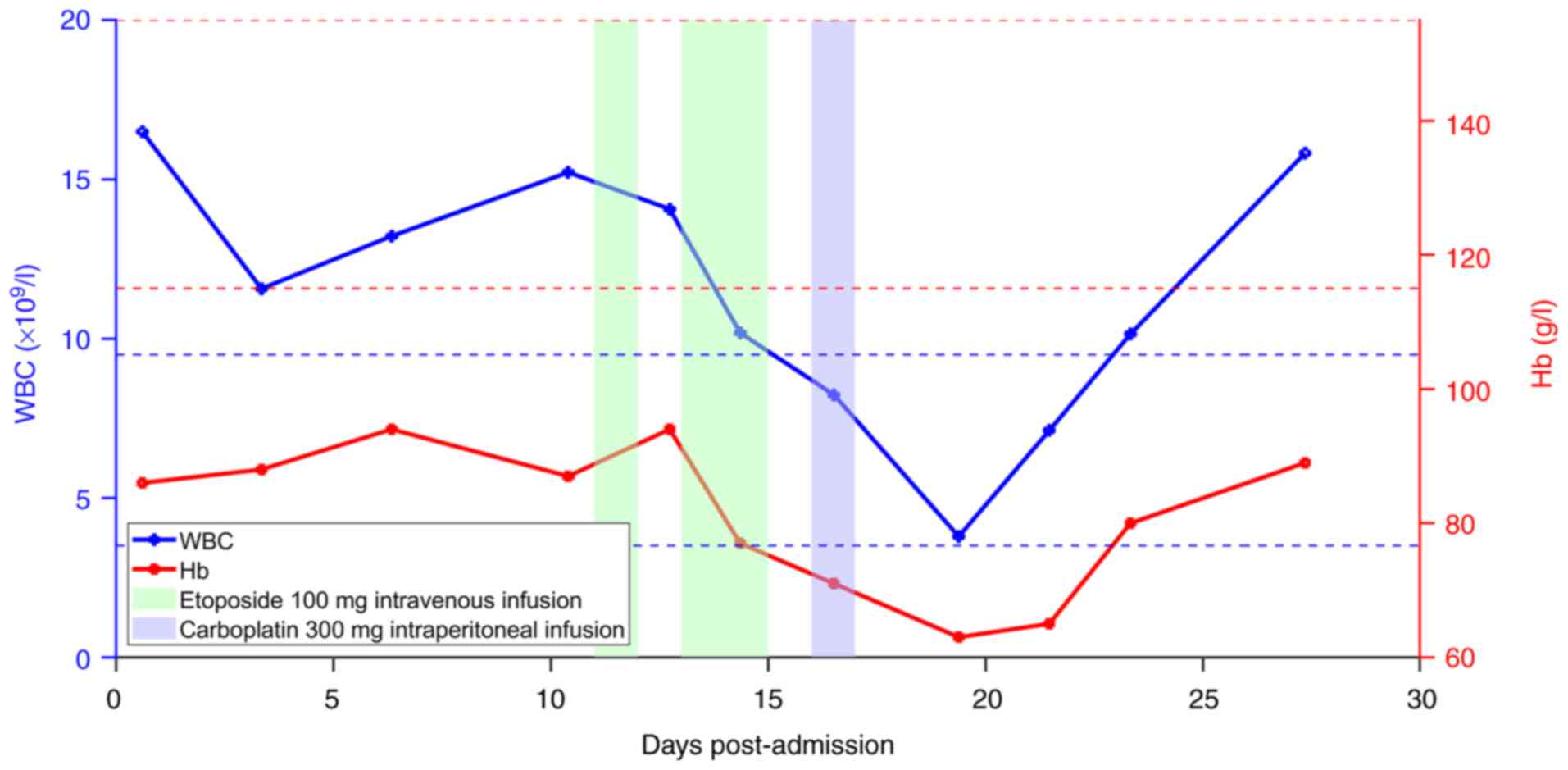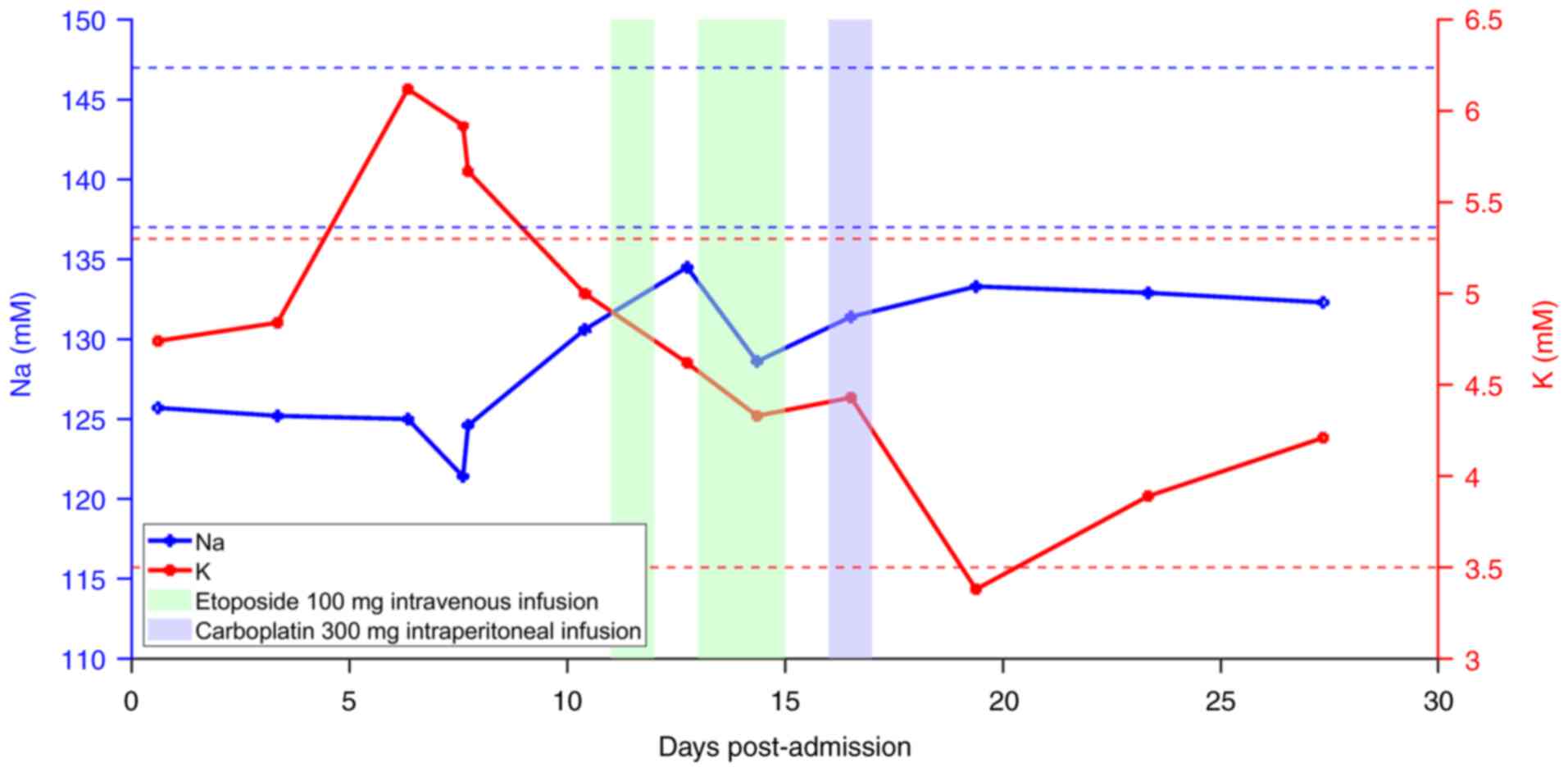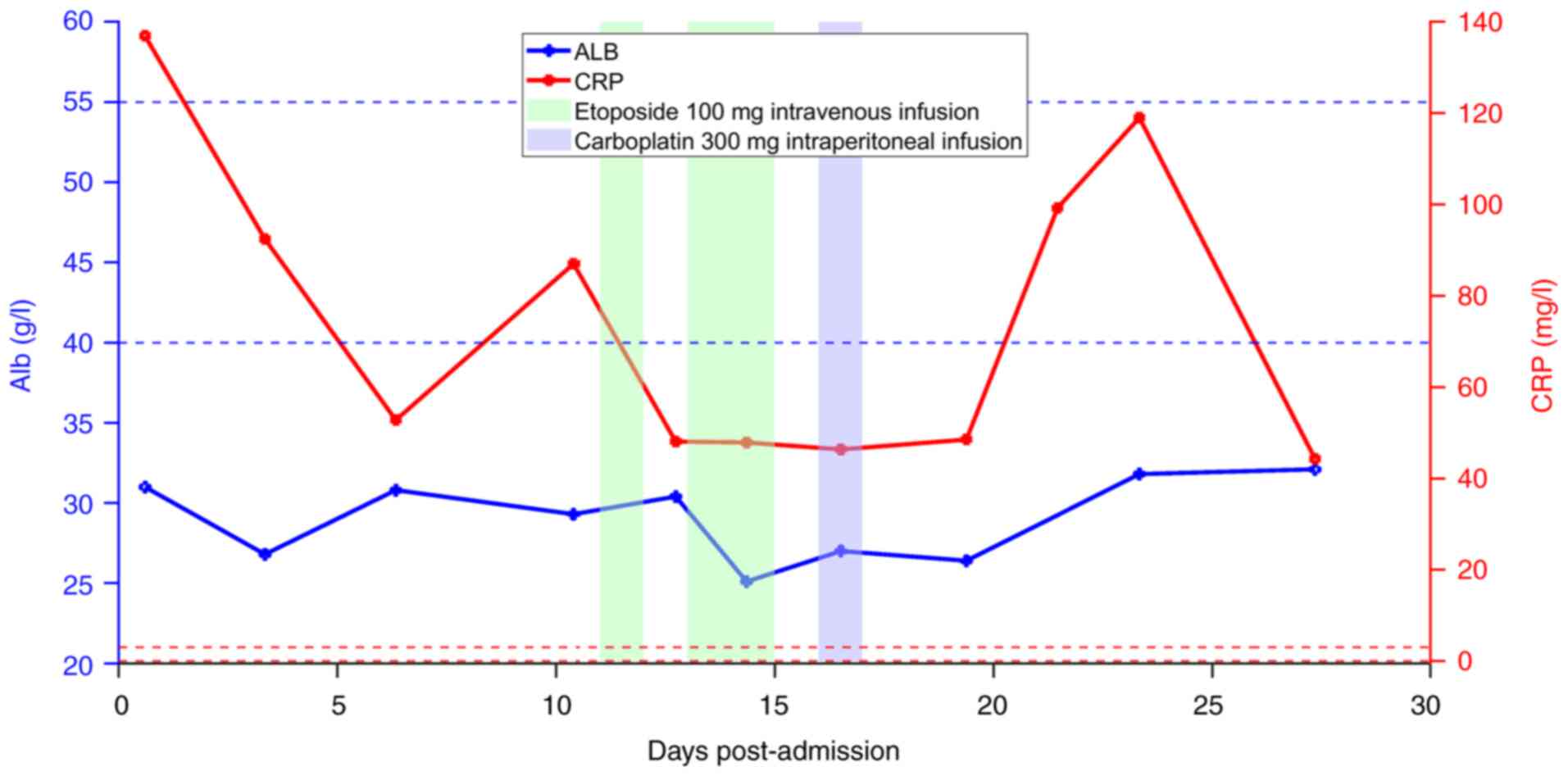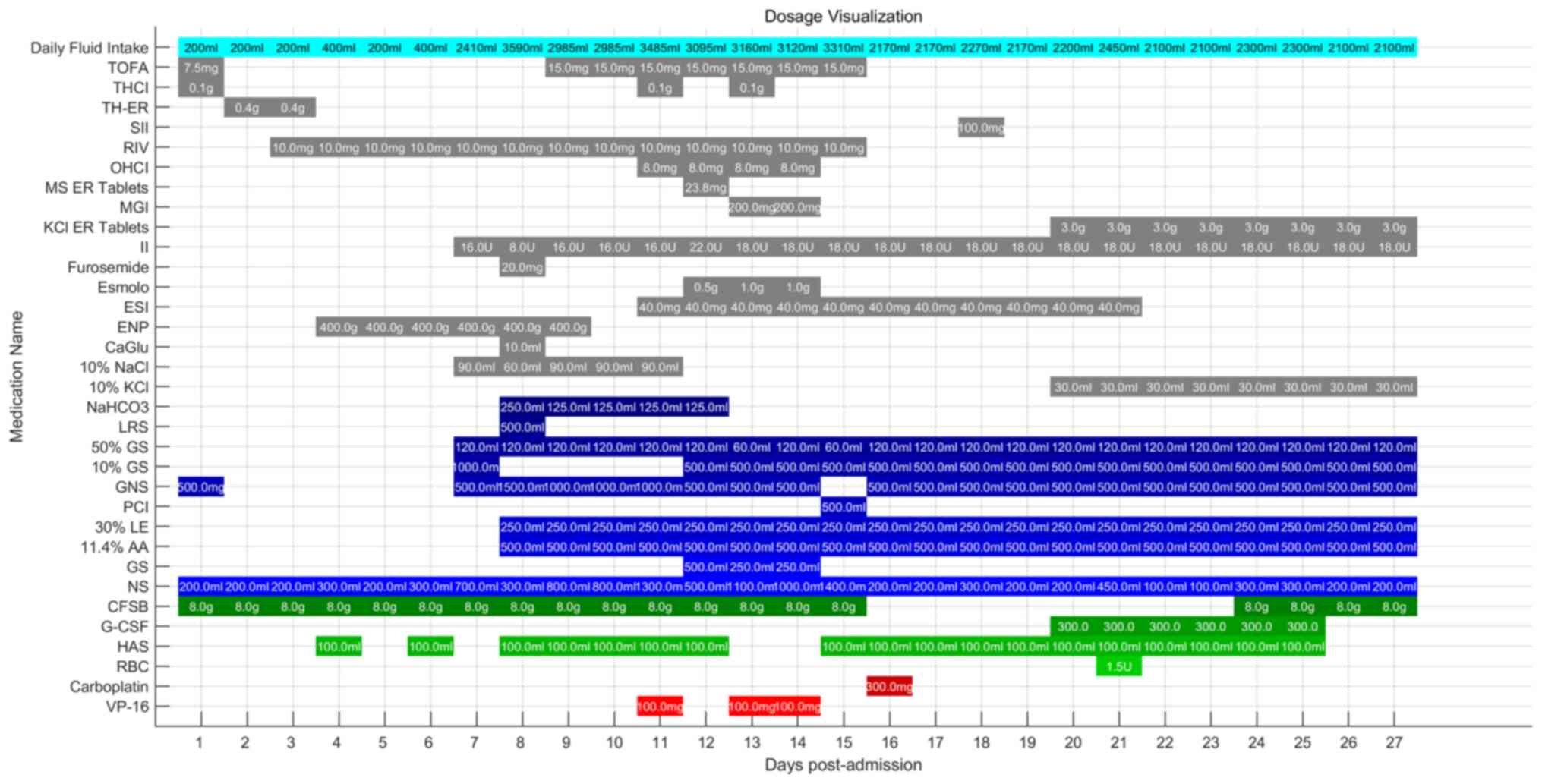|
1
|
Wang C, Lv Z and Zhang Y: Type B lactic
acidosis associated with diffuse large B-cell lymphoma and the
Warburg effect. J Int Med Res. 50:30006052110677492022. View Article : Google Scholar : PubMed/NCBI
|
|
2
|
Abaleka FI, Bedanie G, Olavarria Bernal D,
Yewedalsew SF and Seen T: Type B Lactic acidosis: A very rare but
fatal complication of gastrointestinal solid tumor. Cureus.
16:e567882024.PubMed/NCBI
|
|
3
|
Vavricka J, Broz P, Follprecht D, Novak J
and Krouzecky A: Modern perspective of lactate metabolism. Physiol
Res. 73:499–514. 2024. View Article : Google Scholar : PubMed/NCBI
|
|
4
|
Claudino WM, Dias A, Tse W and Sharma VR:
Type B lactic acidosis: A rare but life threatening hematologic
emergency. A case illustration and brief review. Am J Blood Res.
5:25–29. 2015.PubMed/NCBI
|
|
5
|
Mangala YO and Freeman NJ: Malignancy
associated type B lactic acidosis: A rare, yet fascinating
oncological emergency. R I Med J (2013). 107:10–12. 2024.
|
|
6
|
Heneberg P: Lactic acidosis in patients
with solid cancer. Antioxid Redox Signal. 37:1130–1152. 2022.
View Article : Google Scholar : PubMed/NCBI
|
|
7
|
Espinoza AM and Venook AP: Lactic acidosis
and colon cancer: Oncologic emergency? Clin Colorectal Cancer.
10:194–197. 2011.PubMed/NCBI
|
|
8
|
Ren X, Wu W, Li Q, Li W and Wang G:
Advances in research, diagnosis, and treatment of neuroendocrine
cervical carcinoma: A review. Oncol Rev. 17:117642023. View Article : Google Scholar : PubMed/NCBI
|
|
9
|
Schag CC, Heinrich RL and Ganz PA:
Karnofsky performance status revisited: Reliability, validity, and
guidelines. J Clin Oncol. 2:187–193. 1984. View Article : Google Scholar : PubMed/NCBI
|
|
10
|
Prodromidou A, Phelps DL, Pergialiotis V,
Cunnea P, Thomakos N, Rodolakis A, Fotopoulou C and Haidopoulos D:
Clinicopathological characteristics and survival outcomes of
patients with large cell neuroendocrine carcinoma of the uterine
cervix: A systematic review and meta-analysis. Eur J Obstet Gynecol
Reprod Biol. 270:212–220. 2022. View Article : Google Scholar : PubMed/NCBI
|
|
11
|
Razvi H, Tsang JY, Poon IK, Chan SK,
Cheung SY, Shea KH and Tse GM: INSM1 is a novel prognostic
neuroendocrine marker for luminal B breast cancer. Pathology.
53:170–178. 2021. View Article : Google Scholar : PubMed/NCBI
|
|
12
|
Abu-Rustum NR, Yashar CM, Arend R, Barber
E, Bradley K, Brooks R, Campos SM, Chino J, Chon HS, Crispens MA,
et al: NCCN guidelines® insights Cervical cancer,
version 1.2023. J Natl Compr Canc Netw. 21:1224–1233. 2023.
View Article : Google Scholar : PubMed/NCBI
|
|
13
|
Chinese Society of Clinical Oncology, .
Guidelines for Diagnosis and Treatment of Small Cell Lung Cancer.
2023.(In Chinese).
|
|
14
|
Daverio Z, Balcerczyk A, Rautureau GJP and
Panthu B: How warburg-associated lactic acidosis rewires cancer
cell energy metabolism to resist glucose deprivation. Cancers
(Basal). 15:14172023. View Article : Google Scholar
|
|
15
|
Rezar R, Mamandipoor B, Seelmaier C, Jung
C, Lichtenauer M, Hoppe UC, Kaufmann R, Osmani V and Wernly B:
Hyperlactatemia and altered lactate kinetics are associated with
excess mortality in sepsis: A multicenter retrospective
observational study. Wien Klin Wochenschr. 135:80–88. 2023.
View Article : Google Scholar : PubMed/NCBI
|
|
16
|
Erdur A, Guven R, Can D, Gurkan TT, Ak E
and Avci A: Prognostic importance of lactate and blood gas
parameters in predicting mortality in patients with critical
malignancies. Ethiop J Health Sci. 33:255–262. 2023. View Article : Google Scholar : PubMed/NCBI
|
|
17
|
Mandic A, Maksimovic T, Nadj GS, Maricic S
and Celebic A: Neuroendocrine cervical cancer: Have we made any
steps forward in its management? Eur J Surg Oncol. 1085702024.
View Article : Google Scholar : PubMed/NCBI
|
|
18
|
Cao L and Zhang W: Tumor lysis syndrome in
a patient with advanced lung squamous cell carcinoma undergoing
combined therapy with a programmed cell death protein 1 inhibitor
and first-line chemotherapy: A case report. Oncol Lett. 28:3802024.
View Article : Google Scholar : PubMed/NCBI
|
|
19
|
Dong J, Cao T, Tanner N and Kundranda M:
When the tumor lyses: A case report on spontaneous tumor lysis
syndrome. Case Rep Oncol. 13:979–984. 2020. View Article : Google Scholar : PubMed/NCBI
|
|
20
|
Chhabra R, Vidushi A, Rajpurohit S, Singh
J and Osama MA: Spontaneous tumor lysis syndrome in a case of
hepatocellular carcinoma with sarcomatoid differentiation. Indian J
Surg Oncol. 15:370–374. 2024. View Article : Google Scholar : PubMed/NCBI
|
|
21
|
Mohammad Khuzaini A, Mohd Baharudin JA, Md
Fauzi A, Zulkeflee HA, Abdul Halim H, Mazli SK and Osman NFB:
Tumour lysis syndrome in a neonate with transient abnormal
myelopoiesis. J Neonatal Perinatal Med. 17:269–273. 2024.
View Article : Google Scholar : PubMed/NCBI
|
|
22
|
Busse WW and Szefler SJ: Digital health in
difficult-to-treat severe asthma. Lancet Respir Med. 11:578–579.
2023. View Article : Google Scholar : PubMed/NCBI
|
|
23
|
Nzenwa IC, Berquist M, Brenner TJ, Ansari
A, Al-Fadhl HD, Aboukhaled M, Patel SS, Peck EE, Al-Fadhl MD,
Thomas AV, et al: Type B lactic acidosis in a patient with mantle
cell lymphoma. Case Rep Crit Care. 2023:70211232023.PubMed/NCBI
|
|
24
|
van den Haak DAC, Otten LS, Koenen H,
Smeets RL, Piet B, Pickkers P, Kox M and Heine RT: Evidence-based
rationale for low dose nivolumab in critically ill patients with
sepsis-induced immunosuppression. Clin Transl Sci. 16:978–986.
2023. View Article : Google Scholar : PubMed/NCBI
|















